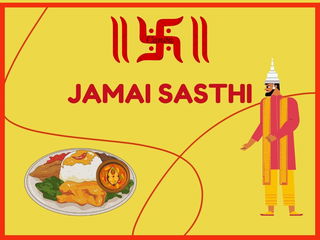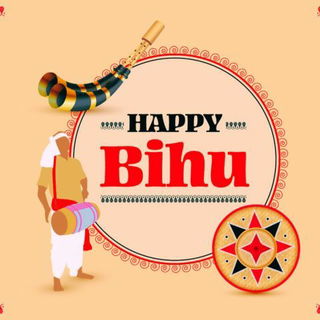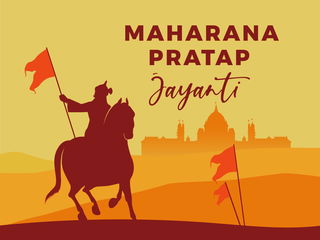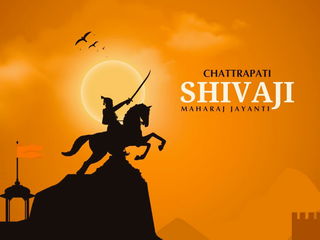- Calendar
- Calendar 2025
- October
- Valmiki Jayanti
Valmiki Jayanti
The next Valmiki Jayanti would be observed on 7th October 2025.
Valmiki Jayanti is observed to honor the birth anniversary of the respected sage and the author of the Hindu epic, Ramayana - Maharishi Valmiki.
It is also known as Pargat Diwas and this day falls on the full moon day of the Hindu month Ashwin which usually falls in September or October in the Gregorian calendar.
The legendary poet and author of the epic Ramayana, Valmiki was also known as the first poet or Adi Kavi. He also wrote the Ramayana in Sanskrit, and it consists of 24,000 verses spread across seven sections.
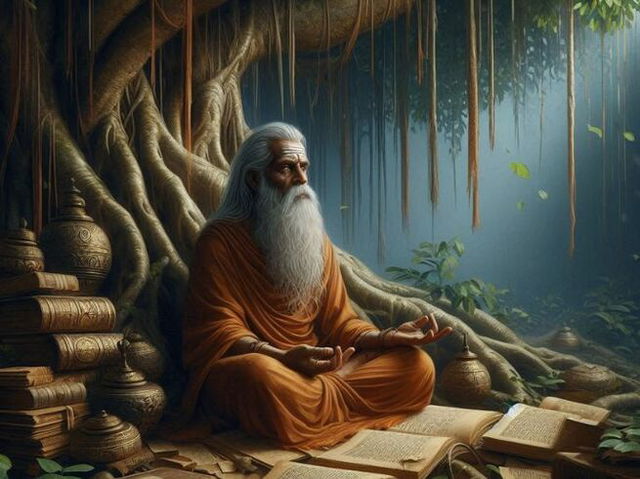
The Story Of Valmiki Jayanti
The exact birthdate of Valmiki is not recorded, but he is believed to have lived around 500 BCE, and it is celebrated on the full moon day of Ashwin because legend suggests that the sage's face radiated with the serene glow of the full moon, reflecting his enlightened and divine nature.
Valmiki Jayanti is celebrated by the Balmiki religious community as he is worshiped as a divine figure by them.
The History of Valmiki
Maharishi Valmiki was originally known as Ratnakar, and he was a dacoit who changed his life completely after a meeting with the sage Narada. This transformation from a criminal to an admired person emphasizes the power of repentance and devotion.
Early Life and Transformation
Valmiki was born as Agni Sharma to a Brahmin family and his father was named Pracheta. He began performing deep acts of penance and repentance after having a deep spiritual encounter with Narada.
Initially, he chanted the word “Mara,” which means “die,” but eventually, this evolved into “Rama,” a name for Lord Vishnu. During his penance, anthills grew around him, leading to the name Valmiki, which means “one who lives in an anthill.”
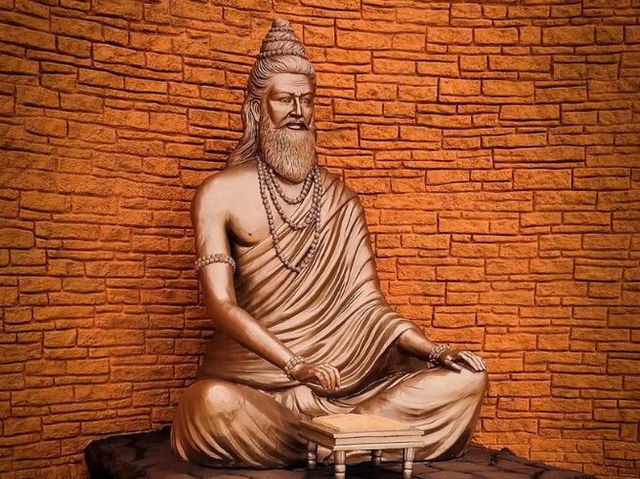
The First Shloka
It is said that a very critical moment in Valmiki's life led him to spontaneously compose the first verse or shloka of Sanskrit language.
He was on his way for his daily bath to the river Ganges, with his disciple Bharadwaja carrying his clothes. On their way, they were looking for a place to bathe and then came to the Tamasa Stream.
Valmiki admired the clear water, and he decided to take bathe there. While searching for a suitable spot, he saw a pair of cranes happily mating, and he felt so glad to see the birds happy.
Just then, a hunter's arrow struck and killed the male crane. The female crane, heartbroken and shocked, also died. Seeing this tragic scene deeply moved Valmiki, and in his anger, he shouted out.
मा निषाद प्रतिष्ठां त्वमगमः शाश्वतीः समाः।
यत्क्रौञ्चमिथुनादेकमवधीः काममोहितम्॥'mā niṣāda pratiṣṭhā tvamagamaḥ śāśvatīḥ samāḥ
yat krauñcamithunādekam avadhīḥ kāmamohitamYou will find no rest for the long years of Eternity
For you killed a bird in love and unsuspecting
Valmiki felt an intense rush of rage, fury, and sorrow at this moment and that led him to create this couplet which got recognized as the first verse in Sanskrit literature.
The Ramayana
Using the same verse style as the first verse, he later penned Ramayana, and he is honored as the first poet while Ramayana is honored as the first epic.
Ramayana is a grand epic with 24,000 shlokas divided into seven books, and it tells the story of Prince Rama, and his wife Sita who got kidnapped by the demon-king of Lanka
This epic is known for its rich storytelling and moral lessons. Scholars believe the Ramayana was composed between the 8th and 4th centuries BCE and was completed by the 3rd century CE.
Role in the Ramayana
In the Ramayana, Valmiki plays an essential role in the Uttarakāṇḍa, the final book. He provides refuge to Sita, who gives birth to twin sons, Lava and Kusha. Valmiki raises them and teaches them the Ramayana, making them his disciples.
Later Life and Reincarnation
It is believed that Tulsidas, who later wrote the Ramcharitamanas, a version of the Ramayana in Hindi.is the reincarnation of Valmiki.
Valmiki Jayanti Celebrations
During Valmiki Jayanti, grand parades known as Shobha Yatra takes place displaying portraits or idols of Valmiki in saffron robes.
These processions are also accompanied by devotional chanting and singing which celebrates Valmiki's profound contributions to Indian spirituality and literature.
Devotees visit temples built to honor the legacy of Valmiki, offer their prayers and recite verses from the Ramayana, Community feasts or langar is also a huge thing on this occasion and people from all across participate in these feasts.
Valmiki Jayanti is celebrated with great devotion and passion across India and with major celebrations in different regions.
In Punjab, the Bhagwan Valmiki Tirath Sthal in Amritsar serves as a central site, featuring Nagar Kirtan (processions) and langar (community meals).
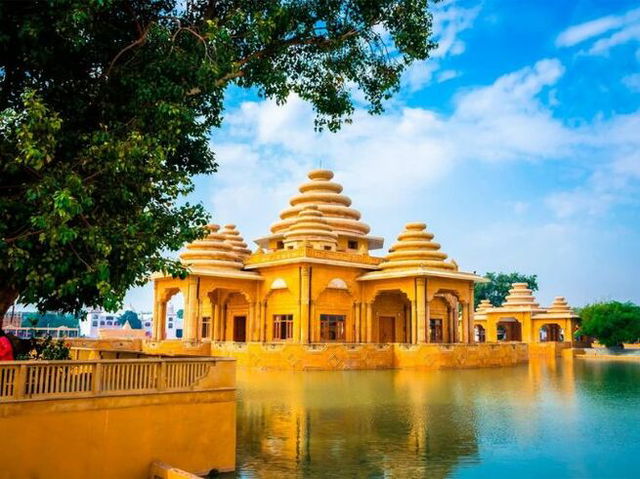
In Uttar Pradesh, particularly in cities like Gorakhpur, temples are beautifully decorated, and devotees engage in continuous Ramayana recitations.
Mysore in Karnataka hosts elaborate processions where devotees perform rituals and recite the Ramayana Katha.
In Tamil Nadu, the Thiruvanmiyur temple in Chennai, a historic site dedicated to Valmiki, witnesses enthusiastic participation with singing and dancing in his honor
Valmiki Jayanti is a powerful reminder of the potential for personal transformation and redemption.
Facts About Valmiki That You Need To Know
- The name 'Valmiki' comes from the Sanskrit word 'Valmika,' meaning an ant-hill, as he emerged from one after years of penance
- Valmiki lived during the Treta Yuga, the same era as Lord Rama
- He was the son of a sage named Prachetasa but was lost in a forest as a child and raised by a hunter who taught him hunting skills
- Valmiki married a girl from a hunter’s family, and they had several children; he turned to robbery to provide for his family
- While attempting to rob Sage Narada, Valmiki was questioned about his sinful life, realized his sole responsibility after consulting his family, and sought redemption.
- He performed deep repentance and during this an ant-hill grew around him.
- Narada eventually returned, removed the ant-hill, and declared Ratnakara a Brahmarshi (great sage), giving him the name Valmiki
- He taught the Ramayana to Lava and Kusha, who later sang it before their father, Lord Rama, without knowing he was their father
Recommended Articles
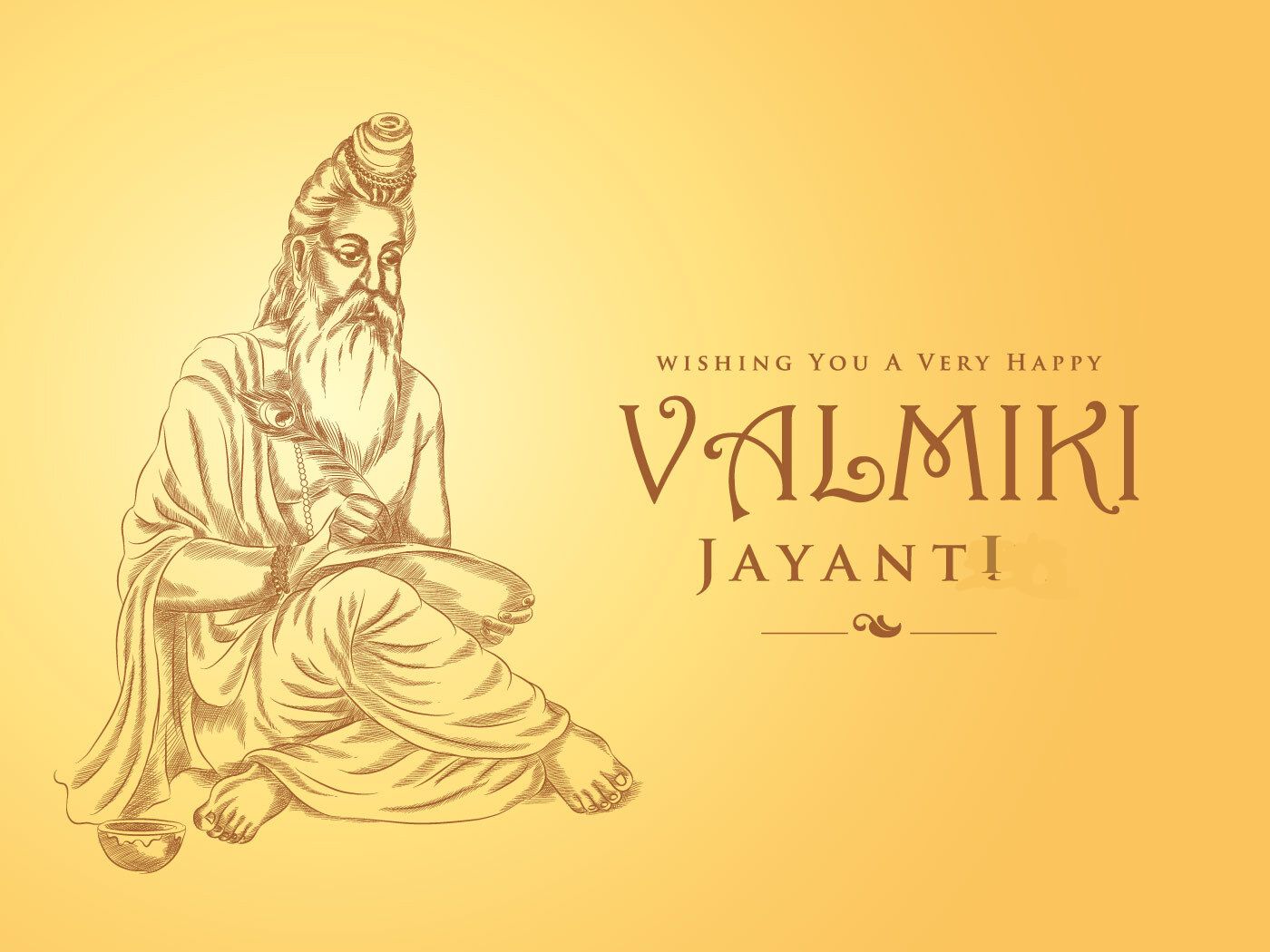
Other Celebrations
-
May 20 Tue
-
May 27 Tue
-
Jun 11 Wed
-
Nov 05 WedGuru Nanak Jayanti Holiday
-
Mar 31 TueMahavir Jayanti Holiday
-
Apr 02 Thu

Valmiki Jayanti - Next years
Monday, 26 October 2026
Friday, 15 October 2027
Tuesday, 03 October 2028

